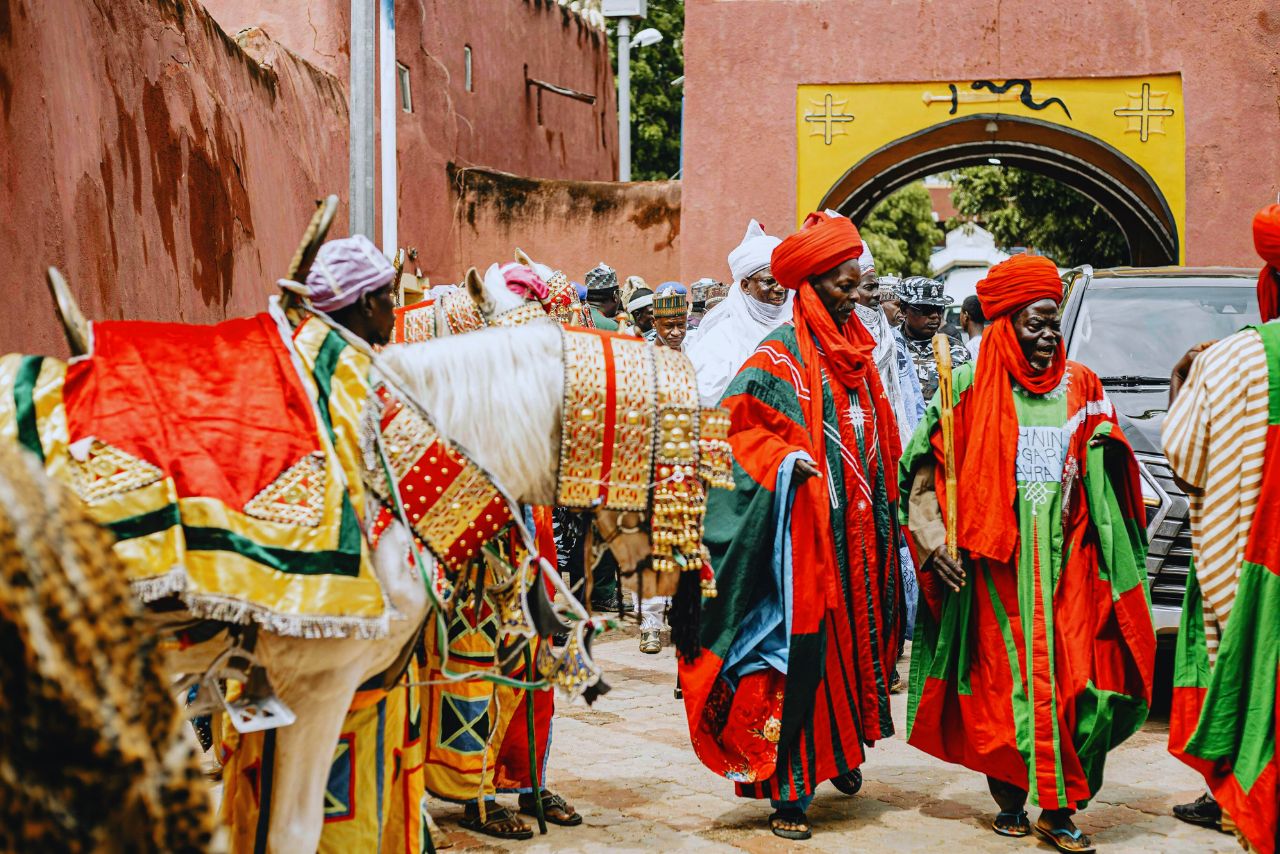What makes West Africa one of the most exciting cultural destinations in the world? The answer lies in its festivals.
Africa is a continent full of cultural diversity, where art, beliefs, and traditions come together to make some of the most interesting cultural festivals in the world.
In West Africa, these festivals are more than social gatherings; they are living expressions of identity, spirituality, and heritage.
Every drumbeat, dance step, and costume tells a story passed down for centuries. Some festivals honor ancestors, others mark harvests, while modern ones celebrate creativity and tourism.
Yet at their core, they all achieve the same purpose: to unite people, preserve West African traditions, and showcase the richness of African culture.
Today, these African cultural festivals are not only vital to local identity but also attract thousands of international visitors who seek to witness the colors, flavors, and rhythms that make West Africa extraordinary.
Below are some of the region’s most celebrated and unforgettable festivals.
Durbar Festival – Nigeria
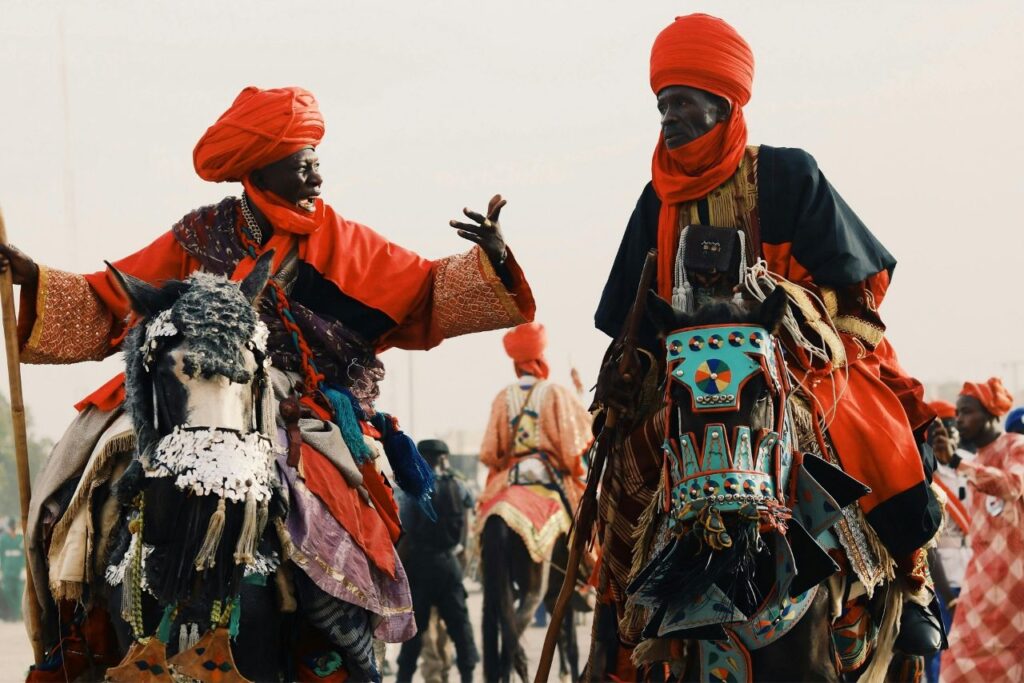
The Durbar Festival in Nigeria stands as one of the most striking cultural events in Africa, showcasing the blend of Islamic traditions and Hausa-Fulani heritage.
Its origins trace back to the 14th century, when emirs organized cavalry parades to show military strength and loyalty to the Sultan.
Over time, the event evolved into a cultural celebration filled with horsemanship, music, and vibrant pageantry.
Durbar takes place in northern Nigeria during Islamic holidays, especially Eid al-Fitr and Eid al-Adha. In 2025, Ilorin hosted a major Durbar on June 9, the third day of Eid al-Adha.
The festival captures attention with its displays of colorful robes, skilled horsemen, and links to both faith and leadership.
Emirs ride at the head of their cavalry, trumpeters fill the air with sound, and riders charge in formation before palace gates or ancient city walls.
For those drawn to African cultural festivals, it offers one of the richest expressions of heritage and community life.
The dates shift each year because the festival follows the lunar calendar. If you plan to attend, secure accommodation early, as cities like Ilorin, Kano, and Katsina get crowded.
Local food vendors offer affordable dishes such as tuwo shinkafa and suya. Visitors are expected to respect traditions, especially the religious aspects tied to the celebration.
When: Twice a year, usually during Eid al-Fitr and Eid al-Adha
Where: Northern Nigeria: notably in Kano, Katsina, Zaria, and Sokoto
Fête du Vodoun, Benin
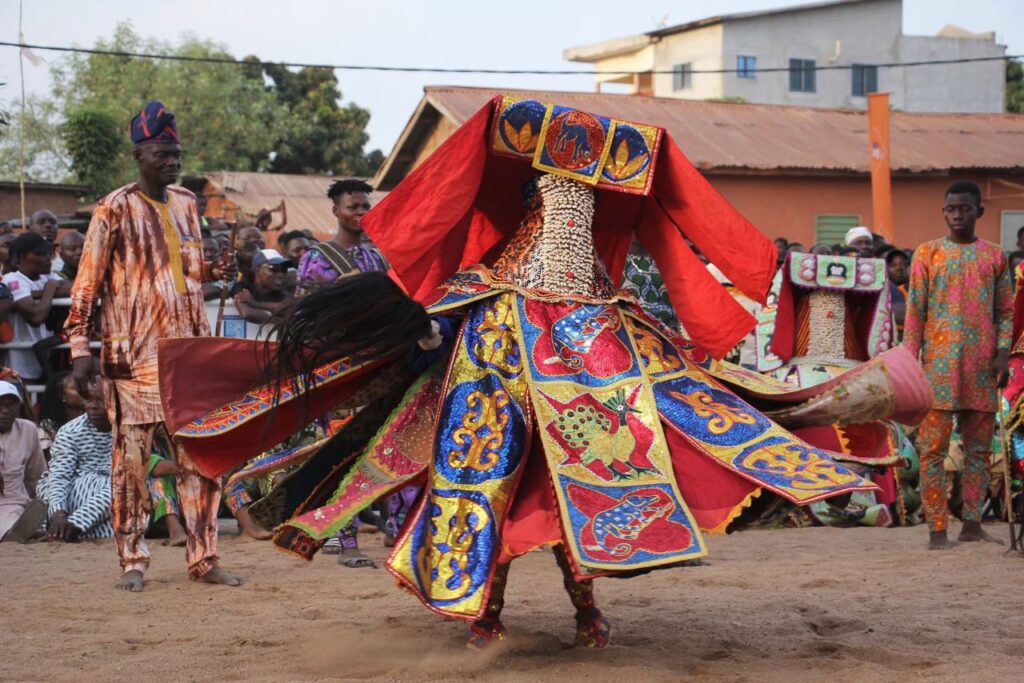
The Fête du Vodoun is one of the most distinctive cultural festivals in West Africa, dedicated to the traditional Vodoun religion that shapes Benin’s identity.
Celebrated every January 10 and recognized as a national holiday since 1996, it attracts worshippers, chiefs, and visitors from around the world.
The city of Ouidah is the heart of the ceremonies, though events take place in other communities as well.
The day is filled with rituals that honor Vodoun spirits.
Masked dancers perform, priests lead prayers, and Zangbétos (guardians of the night) move in vibrant processions.
Music, drumming, and sacred ceremonies at shrines and groves create an atmosphere that is both powerful and spiritual.
For outsiders, it offers rare insight into belief systems that are often misunderstood. Visitors are welcome but must respect local customs and the sacred nature of the rituals.
The Vodoun Festival is not only a celebration of faith but also a showcase of Benin’s cultural pride.
It highlights the country’s commitment to preserving indigenous traditions while presenting a colorful and deeply spiritual experience within African heritage tourism.
When: January 10 every year (national holiday)
Where: Across Benin, with the largest celebrations in Ouidah, Cotonou, and Porto-Novo
Homowo Festival – Ghana
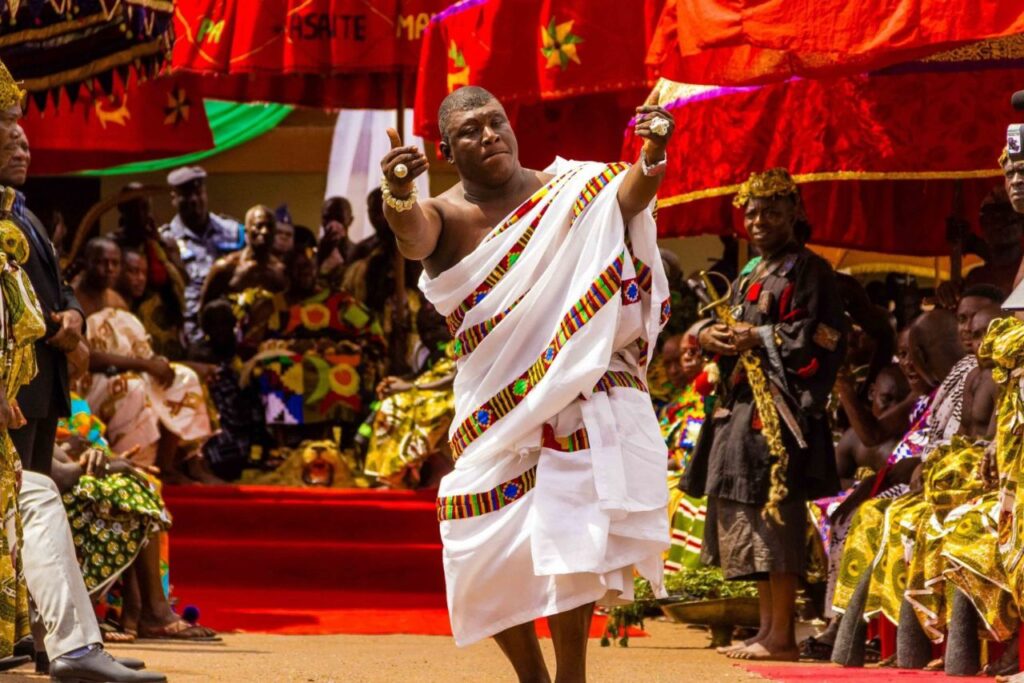
Photo source – gogeafrica.tv
The Homowo Festival of Ghana is one of West Africa’s most vibrant harvest celebrations, rooted in the traditions of the Ga people of Accra.
The word Homowo means “hooting at hunger,” a phrase that recalls the Ga community’s triumph over famine centuries ago through resilience, farming, and unity.
Today, it has become a colorful cultural event that attracts both locals and international visitors.
The festival begins weeks earlier with the planting of maize, a crop that symbolizes renewal and sustenance.
A quiet period follows, marked by a ban on drumming and noise-making in Ga communities. This stage of silence and reflection prepares the people for the joyful climax of the festival.
At the heart of Homowo is the preparation of Kpokpoi, a sacred cornmeal dish mixed with palm oil and served with fish.
Chiefs and elders bless the meal before sprinkling it across the community as a symbol of thanksgiving and abundance.
Families then gather for feasts filled with drumming, dancing, and traditional music, creating an atmosphere of joy and solidarity.
Homowo is more than a harvest ritual. It is a thanksgiving festival, a cultural identity marker, and a unifying force for the Ga people. For them, it reaffirms heritage and survival.
When: Annually in August
Where: Accra and Ga communities, Ghana
READ ALSO: Top Hidden Gems in West Africa You Need to Visit
Calabar Carnival – Nigeria
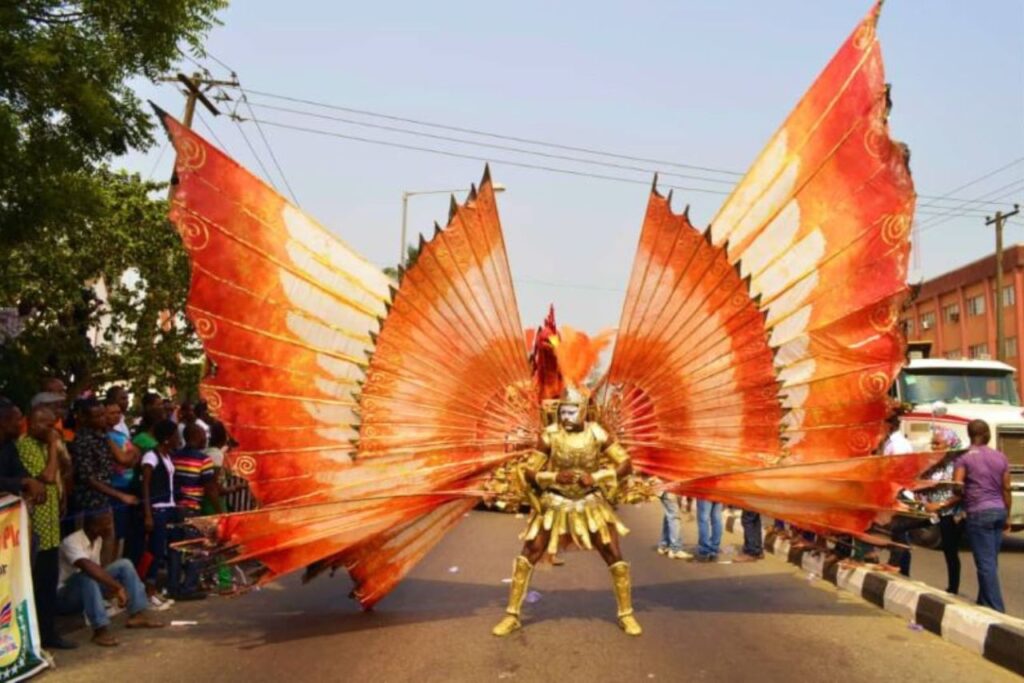
Photo source – Carnival Calabar
Nicknamed “Africa’s Biggest Street Party,” the Calabar Carnival is a month-long festival that combines tradition, tourism, and modern entertainment.
Since its inception in 2004, it has grown into one of the most important African cultural festivals in the world, attracting participants from over 25 countries.
The carnival kicks off on December 1st with opening ceremonies, cultural displays, and musical performances. The main highlight, however, is the Calabar Carnival Parade, which usually takes place between December 26 and December 30.
In this grand procession, five competing bands, each with thousands of costumed performers, march through the streets, showcasing elaborate themes expressed through dance, choreography, music, and costume design.
What sets Calabar apart from other carnivals is its blend of African cultural heritage with Caribbean carnival influence.
While the dances are infused with traditional Nigerian steps, the costumes feature global carnival flair, feathers, sequins, and intricate headpieces.
Beyond entertainment, the carnival has a strong economic role, providing jobs in tourism, hospitality, and costume production.
For tourists visiting Nigeria in December 2025, the Calabar Carnival is a must-see, promising music concerts, cultural parades, beauty pageants, and food fairs that showcase the full spectrum of West African life.
When: Every December
Where: Calabar, Cross River State, Nigeria
FESPACO – Burkina Faso
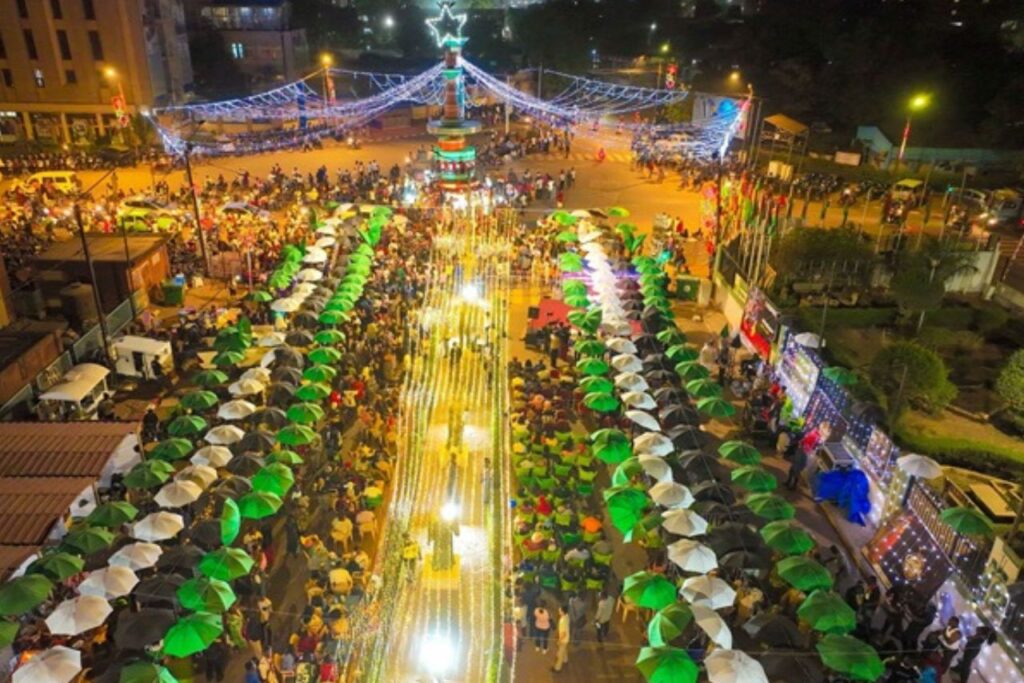
Photo source – wakatsera.com
The Panafrican Film and Television Festival of Ouagadougou (FESPACO) is Africa’s largest film festival, celebrating African storytelling through cinema.
Founded in 1969, it has become the continent’s equivalent of Cannes, shining a spotlight on African directors, actors, and screenwriters.
The 2025 edition took place from February 22 to March 1, 2025, in Ouagadougou. Over 200 films from across Africa and the diaspora were scheduled to screen, including several works from West African countries such as Nigeria, Ghana, and Senegal.
FESPACO is not just about film screenings. It includes panel discussions, workshops, networking sessions, and an international film market, making it a cornerstone event for African cultural diplomacy.
The best African feature film receives the prestigious Étalon de Yennenga award, named after a legendary warrior princess of Burkina Faso.
When: Biennial
Where: Ouagadougou, Burkina Faso
READ ALSO: Where to go in Africa in 2026
Yam Festival (Iri Ji) – Nigeria
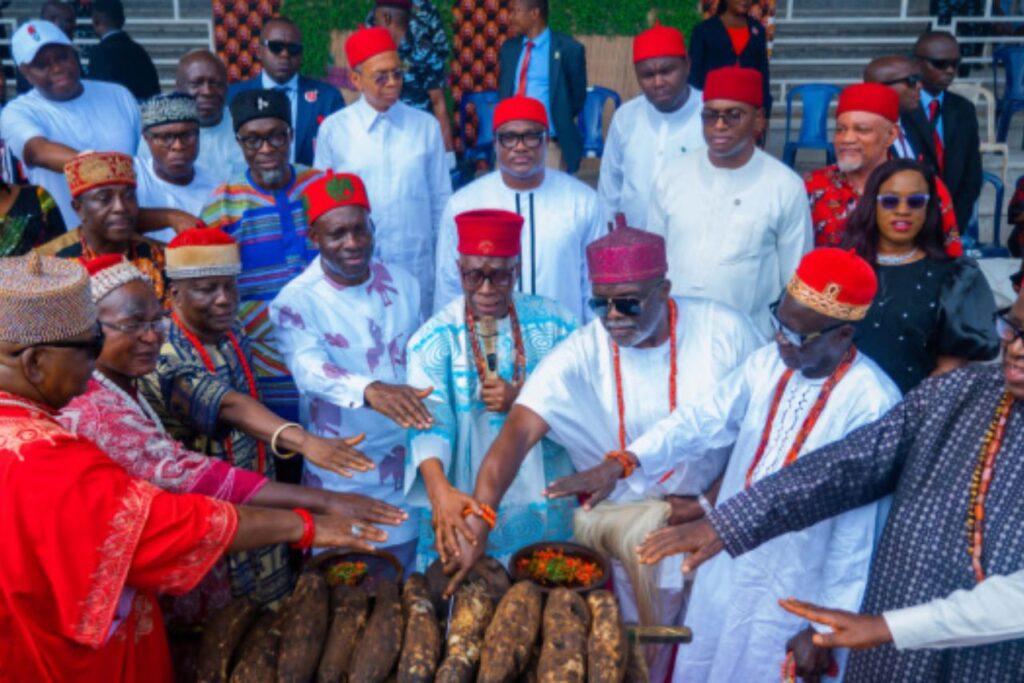
Photo Source – zodml.org
The Yam Festival, also known as Iri Ji, is one of the most important African harvest festivals celebrated by the Igbo people of southeastern Nigeria.
It is held every year between August and early September, depending on the community, to mark the end of the rainy season and the beginning of the new farming cycle.
At the heart of the celebration is the symbolic ritual of eating the first yam. Yams are not just a staple crop in Igbo culture; they are regarded as a gift from the gods and a measure of wealth and prosperity.
The festival also features masquerades, traditional drumming, and dances such as the Atilogwu, performed by energetic youth in dazzling attire.
Chiefs and elders wear regalia, markets fill with food and crafts, and the air becomes alive with music, storytelling, and laughter.
For many Igbo people, the festival is not just about the harvest but about unity, identity, and gratitude to Chukwu, the supreme deity.
For anyone seeking to experience authentic African traditions, the Yam Festival remains a must-see event that combines agriculture, spirituality, and community in a powerful expression of Igbo heritage.
When: Annually between August and early September
Where: Southeastern Nigeria – Igbo communities in Enugu, Anambra, Imo, and Abia States
Fetu Afahye – Ghana
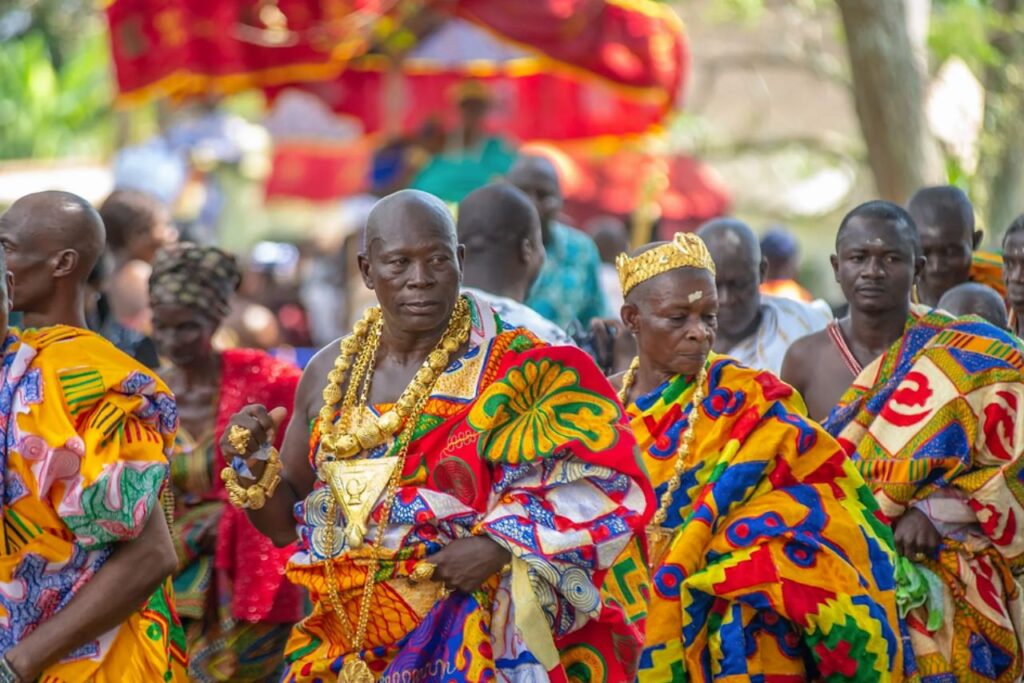
Photo source – travel.theblackonyxgroup
Fetu Afahye is one of Ghana’s most colorful cultural festivals, celebrated by the Oguaa people of Cape Coast.
Its origins date back to the 17th century when the community was saved from a deadly plague after performing cleansing rites to honor their deities.
Today, it is observed as both a thanksgiving and a renewal ritual, bringing together locals, dignitaries, and visitors from around the world to share in the city’s rich heritage.
The festival is marked by a week of ceremonies, beginning with libations and purification rites at sacred shrines.
The highlight is the grand durbar of chiefs, when traditional rulers are paraded through the streets in ornately decorated palanquins, dressed in regal kente cloth and adorned with gold jewelry.
Drummers, dancers, and warriors accompany them, while the city bursts into life with vibrant music, colorful processions, and cultural displays.
For anyone seeking to experience the spirit of West African traditions firsthand, Fetu Afahye offers an unforgettable blend of spirituality, history, and celebration in one of Ghana’s most historic cities.
When: First Saturday in September every year
Where: Cape Coast, Central Region, Ghana
Fête des Masques – Côte d’Ivoire
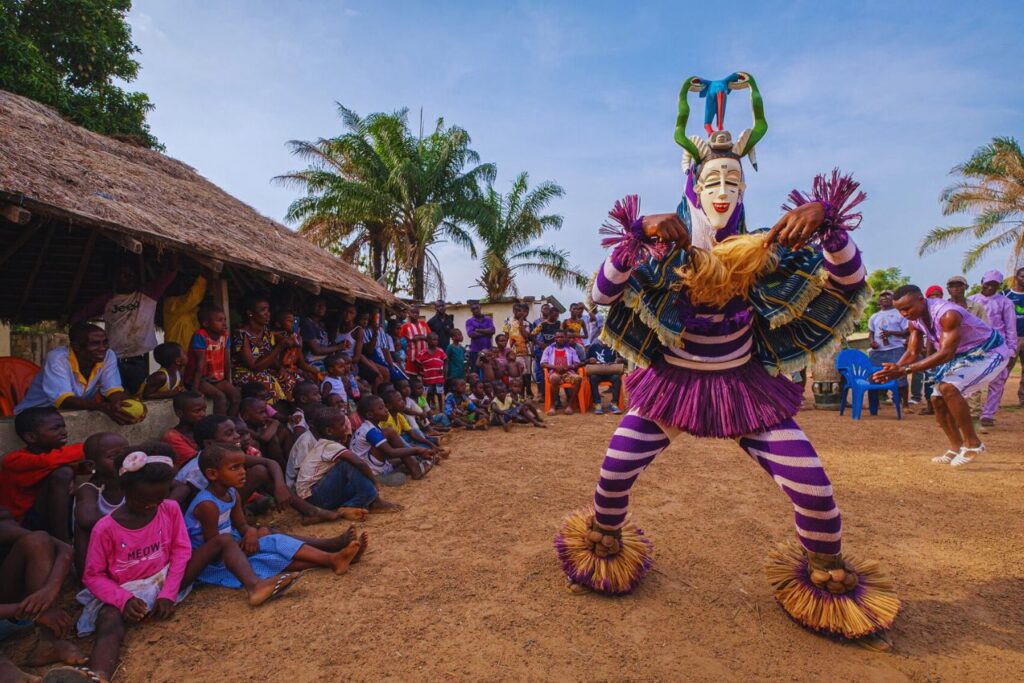
Photo Source – landtours
The Fête des Masques, or Festival of Masks, is one of the most spectacular cultural events in West Africa.
Celebrated by the Dan, Guéré, and other forest-dwelling communities of Côte d’Ivoire, the festival is dedicated to honoring the spirits of the forest, which are believed to watch over the land and its people.
Every year, the city of Man becomes the stage for an extraordinary showcase of masked dances, rituals, and competitions that blend spirituality with performance.
The highlight of the festival is the masked dance competitions, where performers wear intricately carved wooden masks representing forest spirits, animals, or ancestral figures.
Each mask has symbolic meaning, from fertility and protection to justice and wisdom.
Dancers, often young men chosen by their communities, perform acrobatic and theatrical routines, while elders and priests oversee the rituals to ensure the proper respect is given to the spirits.
The air fills with the sound of drums, flutes, and chants, creating an atmosphere that is both mystical and electrifying.
The government and local communities often use the event to promote Ivorian arts, crafts, and cuisine, with markets offering everything from kola nuts to handmade textiles.
The Fête des Masques also provides a rare opportunity for visitors to witness how spiritual beliefs, performance, and community pride intersect in daily life across rural West Africa.
When: Annually in November
Where: Man, Montagnes District, Côte d’Ivoire
READ ALSO: 8 Best Cities for Solo Female Travel in Africa
Tabaski Festival – Senegal
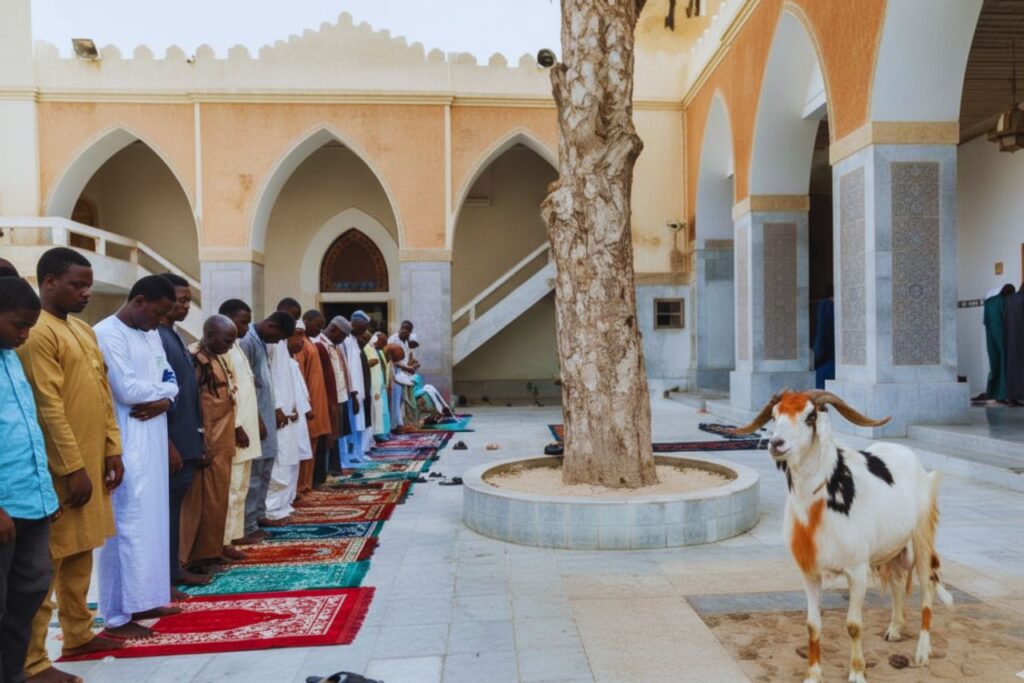
Tabaski, Senegal’s local name for Eid al-Adha, is one of the largest Islamic festivals celebrated across West Africa.
In Senegal, the day is marked with both religious devotion and vibrant communal festivities.
Families dress in their finest traditional outfits, prayers are held in mosques and public squares, and households prepare for the ritual sacrifice of sheep to honor Prophet Ibrahim’s obedience to God.
The festival begins with early morning prayers, after which families gather for the symbolic slaughter of sheep, a practice seen as both a religious duty and a gesture of hospitality.
Meat is shared among family, neighbors, and the less fortunate, reinforcing the festival’s focus on generosity and unity.
Markets across Senegal, especially in Dakar, are filled with colorful fabrics, new clothing, and food supplies in the days leading up to Tabaski, creating an atmosphere of excitement and anticipation.
For visitors, experiencing Tabaski in Senegal is a chance to witness one of the most profound religious festivals in Africa, blending Islamic faith with Senegalese hospitality.
Travelers should note that during Tabaski, many businesses close temporarily, transportation becomes crowded, and hotel availability may be limited.
Still, for those seeking to understand the soul of Senegal, Tabaski offers a deeply moving cultural experience.
When: Dates follow the Islamic lunar calendar; in 2025, Tabaski (Eid al-Adha) was celebrated on June 6
Where: Nationwide across Senegal, with major festivities in Dakar, Touba, and Saint-Louis
Osun-Osogbo Festival – Nigeria
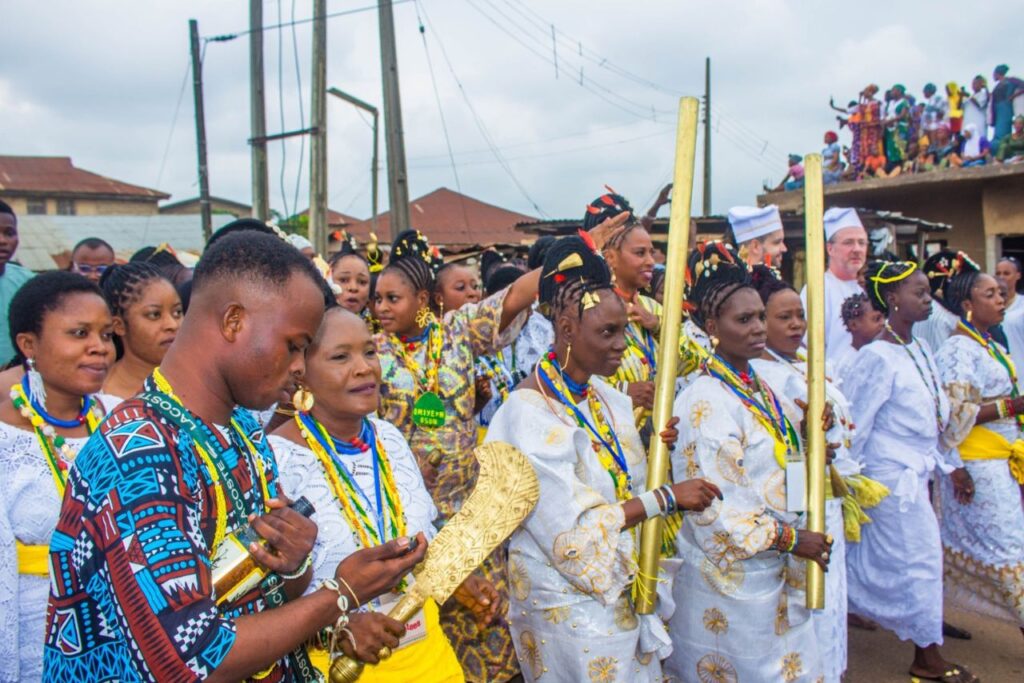
Photo Source – Educated Mechanic X
The Osun-Osogbo Festival is one of the most famous African religious festivals, held annually in honor of Osun, the Yoruba goddess of fertility, love, and rivers.
Centered around the sacred Osun-Osogbo Grove, a UNESCO World Heritage Site, the festival draws worshippers, tourists, and cultural enthusiasts from across Nigeria and the world.
For two weeks every August, Osogbo becomes a place of devotion, celebration, and cultural preservation.
The festival begins with rituals led by the Ataoja (king of Osogbo) and traditional priests, who offer sacrifices and prayers to Oshun at shrines within the sacred grove.
The grand finale is a massive procession to the river, where the Arugba (a virgin girl chosen to carry the sacrificial offerings) leads devotees in prayers for fertility, prosperity, and protection.
Drumming, dancing, chants, and colorful attire fill the streets, creating a deeply spiritual yet festive atmosphere.
The festival continues to play a major role in boosting Nigeria’s cultural tourism, preserving one of the most significant Yoruba traditions in modern times.
The experience offers a profound look into how West African festivals blend spirituality, community, and artistry into an unforgettable cultural celebration.
When: Every August
Where: Osogbo, Osun State, Nigeria
Final Thoughts
West Africa’s cultural festivals do more than entertain.
They sustain traditions, connect communities, honor history, and offer visitors a chance to witness culture in its living form.
When you attend one of these festivals, you are not a spectator; you become part of something lasting: a shared story, a cultural exchange, a memory that echoes far beyond the moment.
To make your festival journey meaningful, plan around when each event is held, respect local customs, find lodging early, and go with openness.
The rituals, music, dance, and spiritual energy of these festivals are waiting.
Take the chance. Let your travels be measured not just by sights seen, but by moments of connection.
West Africa’s cultural heart calls, and you’ll be richer for having answered.

